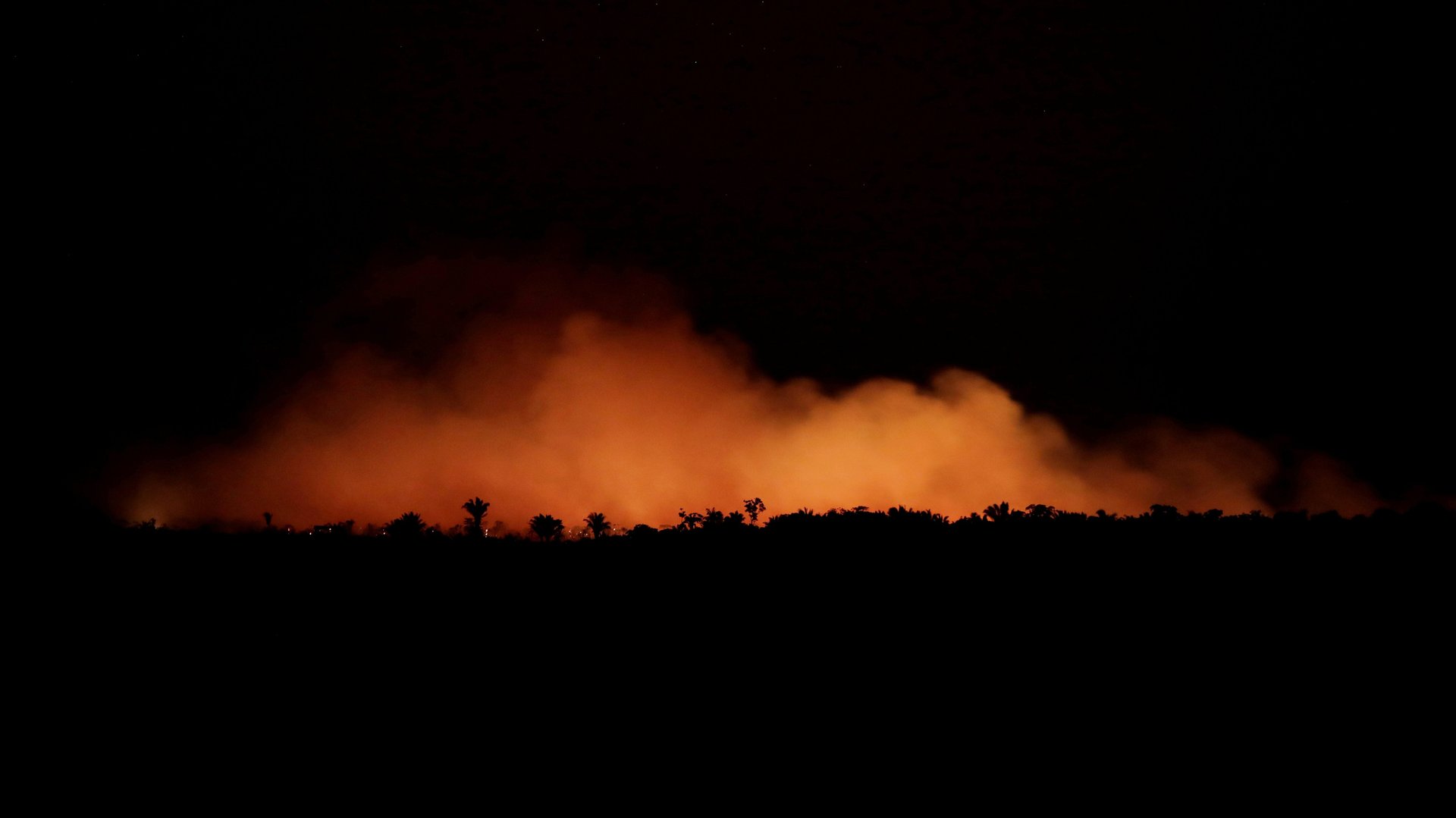For the Amazon fires, the worst is yet to come
For Brazil, August marks the start of the dry season. Every year, right about now, fires in the country start to tick up—but that doesn’t make the ongoing conflagration in the Amazon normal. According to INPE, Brazil’s National Institute for Space Research, fires in the area are up 80% compared to this time last year. And the blazes are likely to worsen in the next few months as the rainforest’s dry season continues.


For Brazil, August marks the start of the dry season. Every year, right about now, fires in the country start to tick up—but that doesn’t make the ongoing conflagration in the Amazon normal. According to INPE, Brazil’s National Institute for Space Research, fires in the area are up 80% compared to this time last year. And the blazes are likely to worsen in the next few months as the rainforest’s dry season continues.
However, as Mikaela Weisse at the forest monitoring service Global Forest Watch points out, “everyone’s talking about year-to-date fires, but not what this looks like for the Amazon moving forward.” Analysis of fire detections by MODIS, a thermal satellite operated by NASA, shows that the worst for the Amazon is yet to come—not just this year, but into the more distant future.
Starting in 2006, the government of Brazil regulated deforestation efforts with the Public Forest Management Law (pdf), which established a set of policies administered by a newly-formed ministry of environment. With the exception of the El Niño years—which spell drought for much of the Amazon—Brazilian-controlled rainforests have seen steep reductions in fire counts during the dry season since these laws went into effect.
But since taking office in 2018, Brazil’s president Jair Bolsonaro has expressed his intent to merge that ministry with the ministry of agriculture—a conflict of interest that would undermine the regulatory efforts from 2006. Bolsonaro primarily sees the rainforest not as a 100 million-year-old rainforest habitat to be preserved, but an opportunity for financial gain. Agribusiness in Brazil all but secured Bolsonaro’s victory after he won support from the farm lobby Parliamentary Agricultural Front (FPA). The lobby likely has no complaints about the ongoing fires; as they eat away at the rainforest canopy, the ashen remains will fertilize the soil beneath while clearing the land for ranching and soybean farming. Blazes are often intentionally set for this purpose.
If lack of oversight allows fires to reach the frequency seen in the 2000s, the Brazilian Amazon may see annual deforestation return to pre-regulatory levels, which peaked at over 9,600 sq mi (25,000 sq km) in 2004. According to the Copernicus Atmosphere Monitoring Service, the fires this year alone have released an estimated 251 million tons (228 million metric tons) of carbon dioxide from the basin. The rainforest is a sink for 2.2 billion tons of carbon dioxide each year, according to NASA scientist Espírito Santo.
Beyond its carbon storage, the Amazon’s biodiversity is at risk, says University of California Berkeley ecologist Paul V.A. Fine. “Amazon’s rainforest is the world’s treasure. It’s like nowhere else on earth. The extent and the size of these intact forests… it’s really breathtaking. The untold number of species of every kind of living thing, many thousands of which have never been described by scientists… We all need to come together to protect it.”
With an administration on the side of opening land to agriculture, the Brazilian government may only be accountable to external bodies—perhaps at the upcoming G7 meeting. French president Emmanuel Macron decried the fires on Aug. 24, urging action ahead of the summit, saying on Twitter: “Our house is burning… [the Amazon fire] is an international crisis.” Without immediate intervention, it appears the fires will continue to burn a hole in one of Earth’s natural healing mechanisms.